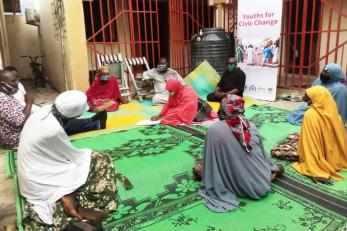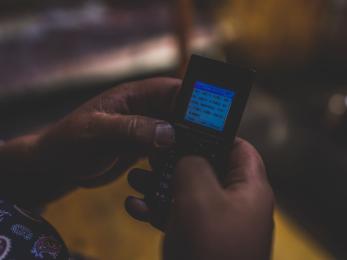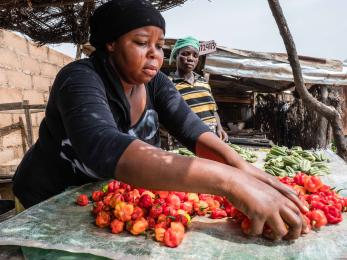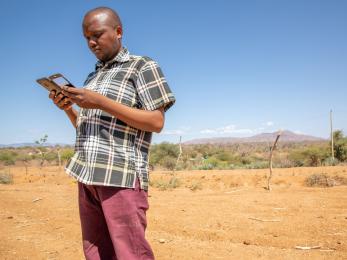Good governance and peacebuilding in the time of COVID-19

Download the executive brief ▸
Download the full report ▸
Throughout the course of adapting to the ongoing pandemic, Mercy Corps has used observations from program teams in more than 40 countries to identify five pathways through which the spread of COVID‑19 and the implementation of containment measures are shaping conflict:
- Deteriorating state-society relations
- Armed groups seeking to expand their activities and influence
- Increasing scarcity and economic competition
- Fraying social cohesion
- Proliferating disinformation and misinformation
We first provide an overview of the ongoing conflict and humanitarian crisis in Northeast Nigeria. Next, we briefly outline existing theory and evidence about the connections between governance, peace and public health crises. We then illustrate these dynamics using a case study of the COVID‑19 response in Borno State. This case study draws on qualitative observations from Mercy Corps' conflict analysis workshops, program monitoring data and reports and analysis from other organizations active in the region.
The case study highlights how pre-existing tensions in state-society relationships have interacted with the spread of COVID‑19 and the public health and humanitarian responses to the pandemic. Throughout the case study, we highlight examples of how Mercy Corps' programs in Northeast Nigeria have attempted to address the linkage between governance, conflict and COVID‑19. The purpose of these examples is to highlight a core set of promising programming approaches that merit further rigorous evaluation and expansion. We conclude by articulating a set of broader recommendations for how donors and their implementing partners can help ensure that the pandemic response supports goals of building peace by strengthening state-society relations.


